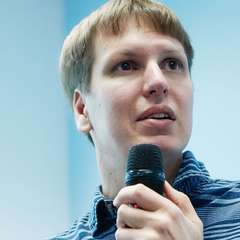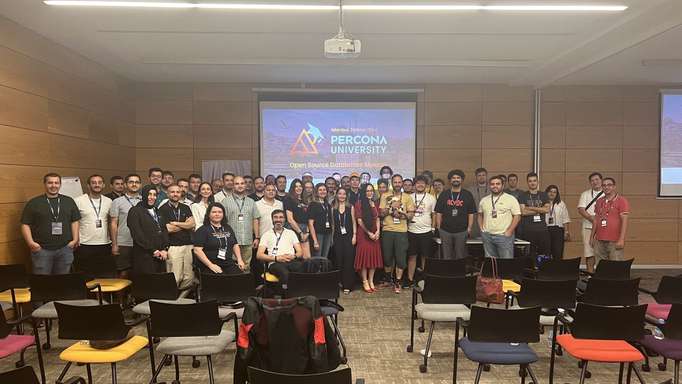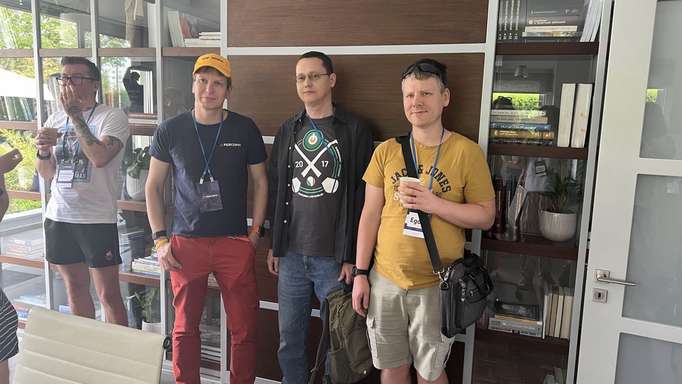Percona University is an ongoing series of community-driven database meetups, bringing together open-source enthusiasts from around the world. On September 7th, we landed in Istanbul, the vibrant cultural and economic hub of Türkiye, for a day of learning, networking, and meaningful connections.

The day began with clear skies and high energy as we gathered early on Istanbul’s Asian side, at a co-working space.

The event kicked off at 9:30 with coffee, networking, and a chance to register, followed by the opening talk by Percona’s founder, Peter Zaitsev. His presentation on the State of Open Source Databases set the tone for the day, sparking a series of in-depth discussions that lasted throughout the event. Attendees were not shy about engaging with speakers—asking thoughtful questions and contributing their perspectives.

The agenda featured a diverse range of topics from industry leaders:
- Peter Zaitsev, Founder of Percona, delivered the Opening talk: State of Open Source Databases.


- Peter Farkas, CEO and Co-Founder of FerretDB, discussed Moving MongoDB Workloads to Postgres.

- Yurii Rashkovskii, Founder of Omnigres, shared innovative insights on Unusual Useful Types for Postgres.
- Alkin Tezuysal, Director of Services at Altinity, explored Database Design and Modeling with PostgreSQL and MySQL, giving attendees practical advice for building scalable applications.
- Patrick Galbraith, Principal Engineer and Consultant, offered his take on Navigating Postgres from a MySQL Expert’s Perspective.

- Nikolay Sivko, Co-Founder of Coroot, led a session on Cloud-Native Postgres Observability.
- Amanda Brock, CEO of OpenUK, presented Global Perspectives on AI Openness: Law & Policy, providing an important look at the intersection of artificial intelligence, legal frameworks, and open source principles.


Each talk was followed by lively Q&A sessions, reflecting the high level of engagement from the audience. The breaks between sessions were filled with conversations and networking opportunities, allowing participants to exchange ideas and expand their professional connections.


During one of the coffee breaks, all attendees had the opportunity to participate in a special raffle featuring the new book by Alkin Tezuysal and Ibrar Ahmed: Database Design and Modeling with PostgreSQL and MySQL: Build efficient and scalable databases for modern applications using open source databases.

Alkin personally signed the books for the lucky winners, adding a personal touch to the event.

To celebrate a successful day, the Percona team gathered for a team dinner, reflecting on the event and strengthening the bonds within the community.

We’re grateful to everyone who attended and contributed to making Percona University Istanbul an unforgettable experience.




